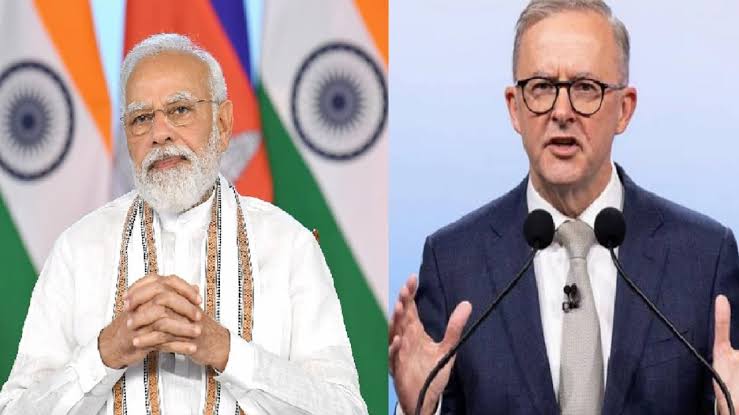
India and Germany Vow Joint Fight Against Terrorism in All Forms

 :
| Updated On: 21-May-2025 @ 1:23 pm
:
| Updated On: 21-May-2025 @ 1:23 pmSHARE
Prime Minister Narendra Modi extended congratulations to Friedrich Merz on becoming the new Chancellor of Germany and engaged in discussions covering regional and global issues of shared interest. During their interaction, both leaders strongly reaffirmed their mutual commitment to combating terrorism in all its forms. Modi, in a post on X (formerly Twitter), emphasized that India and Germany stand united in the global fight against terrorism.
The two leaders also agreed to work closely to deepen and strengthen bilateral cooperation across a broad spectrum of sectors. This includes key areas such as trade and investment, defence and security, and technological innovation. Their meeting marked a step forward in consolidating strategic ties between India and Germany, building on long-standing diplomatic relations and shared democratic values.
These discussions occurred amid a broader Indian diplomatic initiative aimed at enhancing its engagement with Europe. As part of this effort, Indian External Affairs Minister Dr. S. Jaishankar embarked on a three-nation visit to the Netherlands, Germany, and Denmark. This high-level visit is intended to reinforce bilateral and regional cooperation and to advance India’s interests in global forums through greater coordination with European partners.
Further intensifying its outreach, India is also sending multiple all-party delegations to various European countries. These delegations aim to draw international attention to the persistent use of terror by Pakistan, particularly in the context of India’s recent Operation Sindoor. This operation was launched to dismantle terrorist training camps operating within Pakistan and Pakistan-occupied Kashmir (PoK), highlighting India’s proactive stance against cross-border terrorism.
Jaishankar, during his stop in the Netherlands, met Dutch Prime Minister Dick Schoof and expressed gratitude for the Netherlands’ firm and consistent position against terrorism. The visit underscores India’s appreciation for international support in its anti-terrorism efforts and showcases its strategic collaborations in Europe.
Among the seven all-party delegations formed by India, two groups will specifically travel to Europe. The first delegation is set to begin its tour on May 25 and will visit Germany, France, Italy, Denmark, Belgium, and the United Kingdom. The second delegation is scheduled to travel to Spain, Greece, Latvia, and Slovenia. These diplomatic missions will serve to raise awareness among European leaders and the broader public about the threats posed by Pakistan-backed terror networks, as well as India's defensive actions in response.
These collective diplomatic initiatives reflect India’s assertive foreign policy approach, highlighting both its commitment to global counterterrorism cooperation and its pursuit of stronger ties with European nations across economic, security, and technological domains. The collaboration with Germany, as reflected in the leaders’ dialogue, serves as a cornerstone of this evolving strategy, aligning both countries in the pursuit of peace, stability, and shared prosperity.